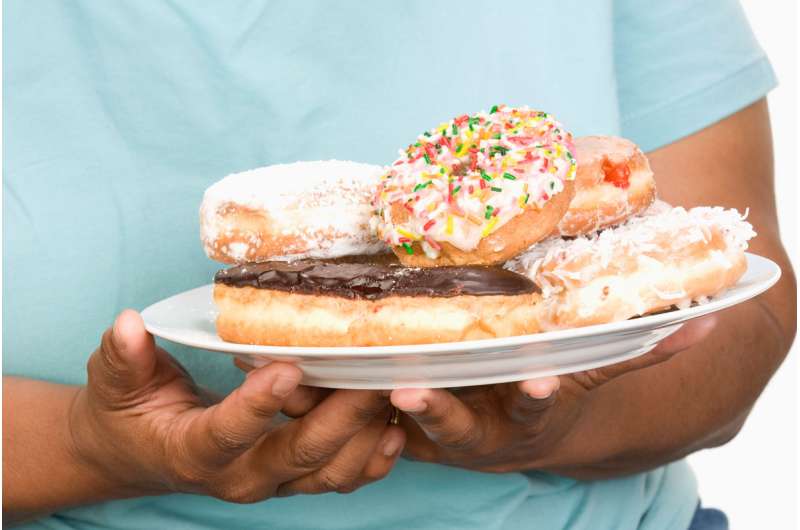Age, obesity, dopamine appear to influence preference for sweet foods

As young people reach adulthood, their preferences for sweet foods typically decline. But for people with obesity, new research suggests that the drop-off may not be as steep and that the brain's reward system operates differently in obese people than in thinner people, which may play a role in this phenomenon.
The new findings are published online June 15 in the journal Diabetes.
"We believe we may have identified a new abnormality in the relationship between reward response to food and dopamine in the brains of individuals with obesity," said the study's first author, M. Yanina Pepino, PhD, an assistant professor of medicine. "In general, people grow less fond of sweet things as they move from adolescence into adulthood. Also, as we age, we have fewer dopamine receptors in a brain structure, called the striatum, that is critical to the reward system. We find that both younger age and fewer dopamine receptors are associated with a higher preference for sweets in those of normal weight. However, in people with obesity, that was not the case in our study."
The researchers studied 20 subjects with healthy weights and compared them with 24 people considered obese, each of whom had a body mass index of 30 or higher. The study volunteers were 20 to 40 years old.
The participants received drinks containing varying levels of sugar to determine the degrees of sweetness each individual preferred. The researchers then conducted positron emission tomography (PET) scans to identify dopamine receptors linked to rewards in each person's brain. Dopamine is the main chemical in the brain that makes us feel good. The PET scans revealed that although there was a relationship between the dopamine receptors, preference for sweet things and age in lean people, that pattern didn't hold true in the brains of obese people.

"We found disparities in preference for sweets between individuals, and we also found individual variations in dopamine receptors—some people have high levels and some low—but when we looked at how those things go together, the general trend in people of normal weight was that having fewer dopamine receptors was associated with a higher preference for sweets," said co-investigator Tamara Hershey, PhD, a professor of psychiatry, of neurology and of radiology.
But that wasn't true in the obese subjects. The relationship between their ages, sweetness preferences and dopamine receptors didn't follow the pattern seen in people who weighed less.
Pepino and Hershey explained that it's possible that insulin resistance or some other metabolic change linked to obesity could contribute to the absence of those associations in the obese group. Although none of the obese study participants had diabetes, some had higher blood glucose and insulin concentrations, and some were becoming resistant to insulin. The researchers believe those factors could have altered the brain's response to sweet things.
"There is a relationship between insulin resistance and the brain's reward system, so that might have something to do with what we saw in obese subjects," Hershey said. "What's clear is that extra body fat can exert effects not only in how we metabolize food but how our brains perceive rewards when we eat that food, particularly when it's something sweet."
More information: Pepino MY, Eisenstein SA, Bischoff AN, Klein S, Moerlein SM, Perlmutter JS, Black KJ, Hershey T. Sweet preferences, DA D2R, age and obesity. Diabetes. June 15, 2016. DOI: 10.2337/db16-0407



















